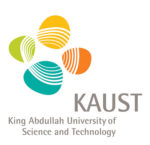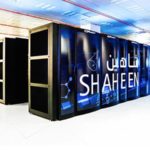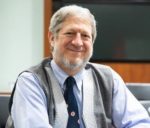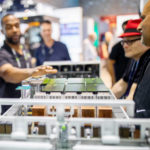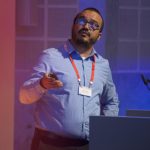SUNNYVALE, Calif. and THUWAL, Saudi Arabia, Sept. 20, 2023 — Saudi Arabia’s King Abdullah University of Science and Technology (KAUST) and AI chip developer Cerebras Systems announced that its work on multi-dimensional seismic processing has been selected as a finalist for the 2023 Gordon Bell Prize for outstanding achievements in HPC. By developing a Tile […]
‘Shaheen III’: KAUST Selects HPE Cray EX HPC-AI Supercomputer with NVIDIA and AMD Chips
Hewlett Packard Enterprise has announced that King Abdullah University of Science and Technology (KAUST) selected HPE to build its next-generation supercomputer, “Shaheen III,” using the HPE Cray EX supercomputer platform. The company said the system will be fully operational in 2023. Seven HPE Cray EX4000 cabinets will include 704 GPU compute nodes, and each node will […]
Shaheen II Supercomputer to power COVID-19 research
KAUST has opened a call for proposals for COVID-19 research to be run on the Shaheen II supercomputer and related resources. Shaheen II joins many supercomputers around the world that have recently reallocated a portion of their resources to campaigns to model the pandemic. “In related news, “COVID-19 and High Performance Computing” is the subject of a special session of the now virtualized ISC 2020 conference, according to Professor David Keyes, Director of KAUST’s Extreme Computing Research Center, who is the Program Chair of the event.”
Video: The Convergence of Big Data and Large-scale Simulation
David Keyes from KAUST gave this talk at ATPESC 2019. “Analytics can provide to machine learning feature vectors for training. Machine learning, in turn, can impute missing data and provide detection and classification. The scientific opportunities are potentially enormous enough to overcome the inertia of the specialized communities that have gathered around each of paradigms and spur convergence.”
Podcast: Sciencetown Investigates Extreme Computing at SC19
In this Sciencetown podcast, we follow experts from around the world to the epicenter of supercomputing – the annual, North American supercomputing conference or SC19. We ask them to weigh in on how the future of computers, artificial intelligence, machine learning and more are coming together to shape the way we explore and understand our world.
David Keyes named ISC 2020 Program Chair
Today the ISC High Performance conference announced that Prof. David Keyes from KAUST will be the ISC 2020 Program Chair. “It is my honor to serve as the ISC 2020 Program Chair,” continued Keyes. “I will do my best to keep the technical program in tune with the community, increase the prestige of being selected to present, expand the range of participants, and present a conference that encourages diverse constituents to take advantage of the latest enablements and fruits of HPC.”
Job of the Week: HPC Systems Administrator at KAUST
KAUST is seeking an HPC Systems Administrator in our Job of the Week. “The HPC senior systems administrator will work with other Advanced Computing Infrastructure team members to administer the 850 node Ibex+ supercomputer, storage systems, other support computers, networking fabrics and other related systems and services. The required competencies of the senior administrator are: high degree of systems design skill with respect to service dependencies and overall systems availability.”
Why the World’s Largest Telescope Relies on GPUs
Over at the NVIDIA blog, Jamie Beckett writes that the new European-Extremely Large Telescope, or E-ELT, will capture images 15 times sharper than the dazzling shots the Hubble telescope has beamed to Earth for the past three decades. “are running GPU-powered simulations to predict how different configurations of E-ELT will affect image quality. Changes to the angle of the telescope’s mirrors, different numbers of cameras and other factors could improve image quality.”


